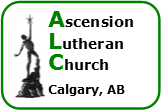Eighth Sunday After Pentecost
Luke 12:13-21
[13] Someone in the crowd said to him, “Teacher, tell my brother to divide the family inheritance with me.” [14] But he said to him, “Friend, who set me to be a judge or arbitrator over you?” [15] And he said to them, “Take care! Be on your guard against all kinds of greed; for one’s life does not consist in the abundance of possessions.” [16] Then he told them a parable: “The land of a rich man produced abundantly. [17] And he thought to himself, ‘What should I do, for I have no place to store my crops?’ [18] Then he said, ‘I will do this: I will pull down my barns and build larger ones, and there I will store all my grain and my goods. [19] And I will say to my soul, ‘Soul, you have ample goods laid up for many years; relax, eat, drink, be merry.’ [20] But God said to him, ‘You fool! This very night your life is being demanded of you. And the things you have prepared, whose will they be?’ [21] So it is with those who store up treasures for themselves but are not rich toward God.”
The word translated as “greed” in this gospel text, is rendered as “covetousness” in other English translations of the Bible. The two terms, while similar in meaning are subtly different. Greed is the desire to accumulate wealth (money, property, possessions) by any means available. Covetousness is the desire to acquire someone else’s wealth. Neither attitude is encouraged in Scripture. The ninth and tenth of the 10 Commandments speak explicitly against covetousness, which could be understood to have greed at its root—thus, Jesus’ warning.
He isn’t saying that wealth, property or possessions are bad—but rather is warning against making those things more of a priority than is good for us and our souls. The trouble comes when our hope is placed in how much we have materially, rather than placing our hope in Christ.
The rich man in the parable is not judged for being rich, for being prosperous (having good crops), or even for building new barns to store his crops. He is called a “fool” because he believes that this wealth, rather than God, will care for his soul.
How easy is it for us to think that all our troubles would be taken care of if we just had “a little bit more”? It’s one thing to want to do well, to provide for ourselves and our families, but it’s something else to believe that anything other than God can truly provide for our souls.
This gospel text calls us to stop and prayerfully reflect on where our priorities lie—so that we don’t mistakenly place our hope in anything other than God.
